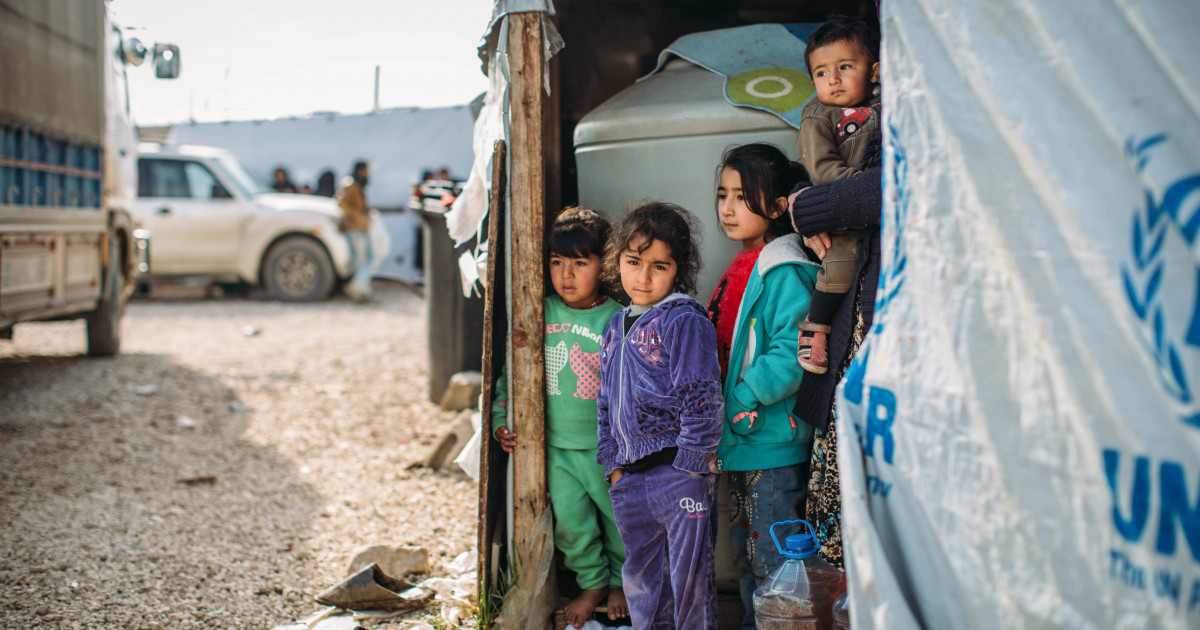The Middle East Institute (MEI) is pleased to host a public release of the World Bank's new report, “The Mobility of Displaced Syrians: An Economic and Social Analysis.” This report examines key factors behind the return of more than 100,000 Syrian refugees, and analyzes the various challenges and risks refugees must navigate as they consider a return home.
What are the conditions enabling the return of Syrian refugees to Syria? How could the future returns differ from the returns that have taken place so far? Which policy options does the international community have to support Syrian refugees, their hosts, and Syrians in Syria?
To present the report’s findings are World Bank Regional Director for the Mashreq Saroj Kumar Jha and lead author of the report and Senior Economist Harun Onder. Joining the discussion is U.S. Institute of Peace Senior Advisor Mona Yacoubian. MEI Senior Vice President Amb. Gerald Feierstein will moderate the discussion.
Speaker biographies:
Saroj Kumar Jha
Regional director for the Mashreq, World Bank
Saroj Kumar Jha is the regional director of the Mashreq department (Lebanon, Iraq, Syria, Jordan and Iran) at the World Bank Group. Jha brings to the region a vast experience in a critical period of transition. Jha’s top priorities in his new role are: (i) maintaining a dialogue with all stakeholders to provide overall strategic leadership for the Bank’s engagement in line with the region's emphasis on job creation, sustainable growth, inclusion and governance; (ii) developing a strong analytical program that can inform policy and investment choices; and (iii) building effective, integrated country teams to ensure efficient and high quality support to the client focused on results. Before this, he was the senior director for the Fragility, Conflict and Violence (FCV) Global Practice at the World Bank Group since February 2016. He provided strategic leadership addressing the challenge of fragility, conflict and violence, working across the World Bank Group and in close collaboration with partners. Jha, an Indian national, joined the World Bank in 2005 as a senior infrastructure specialist in the Sustainable Development Network, after working for the Government of India (1990-2005) and the United Nations agencies (1999-2004) as a senior executive in the field of public sector management, infrastructure financing, natural resources management, natural disaster prevention, and environmental sustainability.
Harun Onder
Senior economist, World Bank
Harun Onder is a senior economist in the Middle East and North Africa region of the World Bank. His work at the Bank has focused on the economics of conflict and forced displacement, international trade policy, economic implications of demographic transitions, and challenges faced by natural resource-rich economies. He provided analysis, training, and technical assistance to many governments in Africa, Europe, Latin America and the Middle East. Currently, Onder leads the World Bank’s analytical program on the Syrian conflict. He was the lead author of World Bank flagship reports “The Mobility Displaced Syrians,” “The Toll of War,” and “The Economics of Hosting Refugees.” His technical work has been published in leading academic journals including the Journal of International Economics and the Journal of Development Economics, and his contributions have been widely featured in media outlets including BBC, CNN, NPR, The Financial Times, The New York Times, and The Wall Street Journal, among others.
Mona Yacoubian
Senior advisor for Syria, Middle East and North Africa, U.S. Institute of Peace
Mona Yacoubian joined the U.S. Institute of Peace after serving as deputy assistant administrator in the Middle East Bureau at USAID from 2014-2017 where she had responsibility for Iraq, Syria, Jordan and Lebanon. Yacoubian currently serves as executive director for the Congressionally-mandated, bipartisan Syria Study Group. Prior to joining USAID, Yacoubian was a senior advisor at the Stimson Center where her work focused on the Arab uprisings with an emphasis on Syria. Prior to joining the Stimson Center, Yacoubian served as a special advisor on the Middle East at the U.S. Institute of Peace where her work focused on Lebanon and Syria as well as broader issues related to democratization in the Arab world. From 1990-1998, Yacoubian served as the North Africa analyst in the State Department's Bureau of Intelligence and Research. Yacoubian’s research focuses on conflict analysis and prevention in the Middle East, with a specific focus on Syria, Iraq, and Lebanon. Her interests also include fragility and resilience.
Amb. Gerald Feierstein (moderator)
Senior vice president, MEI
Amb. Gerald Feierstein is senior vice president at MEI. He retired from the U.S. Foreign Service in May 2016 after a 41-year career with the personal rank of Career Minister. As a diplomat he served in nine overseas postings, including three tours of duty in Pakistan, as well as assignments in Saudi Arabia, Oman, Lebanon, Jerusalem, and Tunisia. In 2010, President Obama appointed Feierstein U.S. Ambassador to Yemen, where he served until 2013. From 2013 until his retirement, Feierstein was Principal Deputy Assistant Secretary of State for Near Eastern Affairs. In addition to his career-long focus on the Near East and South Asia, Amb. Feierstein also played a prominent role in developing and implementing State Department policies and programs to counter violent extremism. As Deputy Coordinator and Principal Deputy Coordinator in the State Department’s Counter-Terrorism bureau, Feierstein led the development of initiatives to build regional networks to confront extremist groups as well as to counter terrorist financing and promote counter-terrorism messaging.












